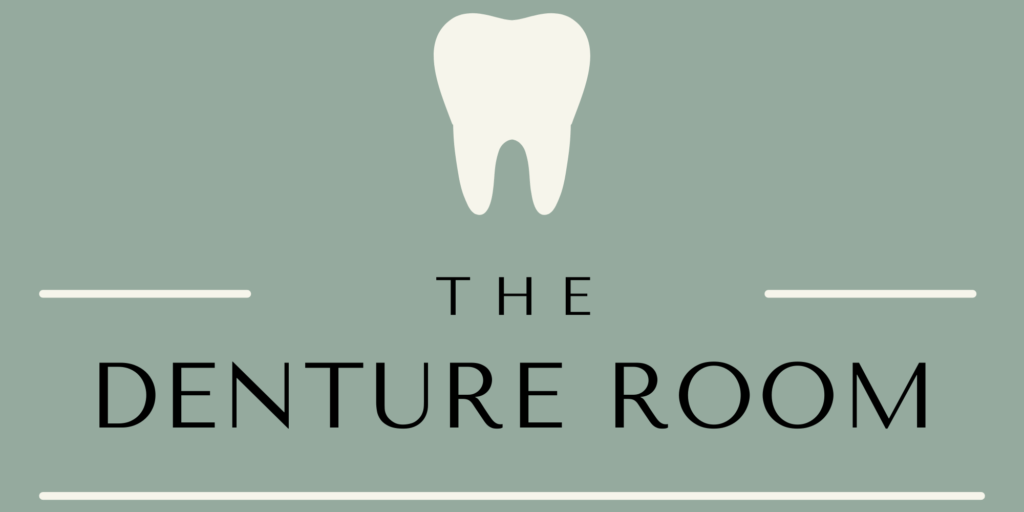THE DENTURE ROOM
F A Q
FREQUENTLY ASKED QUESTIONS
Give us a call if you don't find your answers below.
-
What is a Dental Prosthetist?
A dental prosthetist is registered by the Dental Board of Australia, the same board that registers dentists, oral health therapists and hygienists.
They work as independent practitioners who have completed extensive training in assessing and treating patients requiring removal dentures.
They can also work in conjunction with dentists and dental specialists to produce implant-retained dentures and immediate dentures.
-
Why do I need to replace missing teeth?
Gaps in between natural teeth:
— Cause tooth drifting, which can interfere with your bite over time and can lead to temporomandibular joint disorder, causing headaches, complicated jaw pain, neck pain, popping and clicking.
— Impact your ability to chew food, which can have negative effects on your digestive system
negatively affect your smile’s aesthetics.
— Cause teeth to over erupt, exposing the tooth’s root, making it vulnerable to decay (caries).
-
Why does my denture keep causing ulcers and irritations?
A check-up with your dental prosthetist is recommended if ulcers and irritations continually arise. They can occur for several reasons:
— Ill-fitting denture
— Oral Candida or denture-associated erythematous
— Dry mouth
— Sharp or rough edges
— Minimal remaining lower jawbone.
-
How long do dentures last for?
A properly fitting denture will remain functional for around five to eight years.
When natural teeth are removed, the jaw bones shrink rapidly at first, then more slowly for the remainder of the patient’s life. As this happens, it changes the fit of the denture.
Denture teeth and acrylic material also wear down over time which may lead to problems with chewing food. Some indications that your denture may need replacement are:
— Sore spots
— Looseness
— Flattened or worn teeth
— Over-closing of the jaw
— Speech difficulties
-
Should I clean my denture?
Dentures should be removed from the mouth and cleaned twice a day with warm water, a mild hand soap, and a soft tooth/denture toothbrush to remove plaque and food remanence. DO NOT clean your denture with hot water or toothpaste. Maintaining a healthy oral environment helps prevent Candida from developing.
-
How many appointments do I need?
The required number of appointments depends on the treatment plan. For a patient lacking all their natural teeth, six or more appointments might be required, whereas only four appointments might be needed for patients only missing a few teeth.
-
And how long is each appointment?
Each appointment will last 30–40 minutes.
-
How do I mantain a healthy mouth with and with no teeth?
Help minimise tooth decay and gum disease with regular dental reviews and flossing, paired with brushing your natural teeth at least twice a day with fluoride toothpaste and a soft toothbrush. Good oral hygiene is still promoted with patients lacking all their natural teeth by brushing all surfaces of gums, cheeks and tongue with a soft toothbrush to prevent Candida from developing.
-
Do you have a payment plan?
At The Denture Room, you are welcome to pay small instalments throughout your treatment to help ease your financial worry.
-
When is it time for a new denture?
The following are indications that you may require a new a denture:
— Difficulties chewing your food
— Denture irritating your gum, causing ulcers
— Difficulties speaking
— Denture feeling loose and unstable
— Noticing the distance between your nose and chin becoming smaller
-
What are the side effects on an ill-fitting denture?
— Temporomandibular joint disorder (TMJ), which includes symptoms like complicated jaw pain, popping, clicking, headaches and neck pain.
— Poor nutritional intake.
— Poor ability to chew food, which can lead to digestive complications.
— Unwarranted bone shrinkage, which can further impact denture suction.
— Unflattering smile.
-
How long does it take to adjust to new dentures?
It usually takes between four and twelve weeks to adjust to a new set of dentures. In that time, the dentures may require adjusting to ease rubbing and/or ulcerations that can arise.
-
Should I take my denture out at night?
It is recommended to remove your denture at night and leave it in a dry environment after cleaning. This reduces yeast colonisation and plaque accumulation on your denture.
-
How often should I visit my dental prosthetist?
It is recommended that you make regular appointments with your dental prosthetist to have your denture and the health of your mouth assessed. Review appointments are suggested even if your denture is not causing any concerns. The prosthetist will review the fit of your denture and examine the surfaces of your tongue, the roof of mouth, cheeks and gums for any adversity that may need addressing or referring.
-
Can you do home visits and home nursing visits?
Yes, absolutely. We understand that it can be difficult for some patients to leave the comfort of their own home. After a phone consultation, Stephanie will determine whether a home visit is suitable.
Book a Free Consultation Today
Book in a consultation with Stephanie Marwick prior to your appointment.
At The Denture Room, we aim to provide detailed treatment plans that will enable patients to make informed decisions and have a positive treatment experience to establish a long-lasting patient relationship at the completion of their appointments.
Our Services
Opening Hours
- Mon - Fri
- -
- Sat - Sun
- Appointment Only



All Rights Reserved | The Denture Room
Web Design by Social Space

